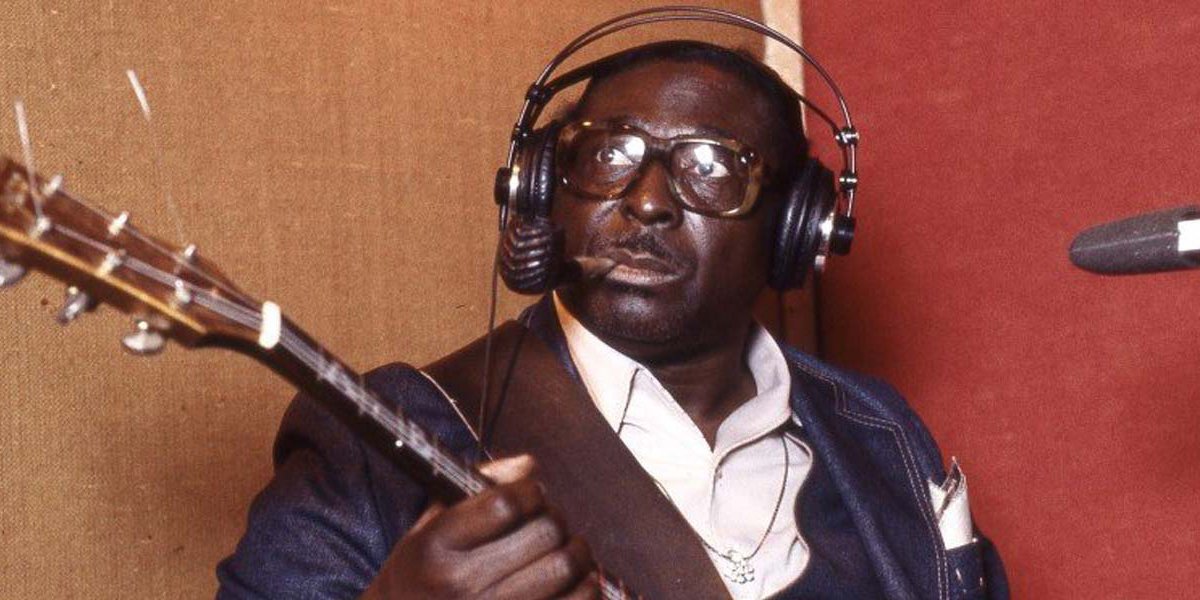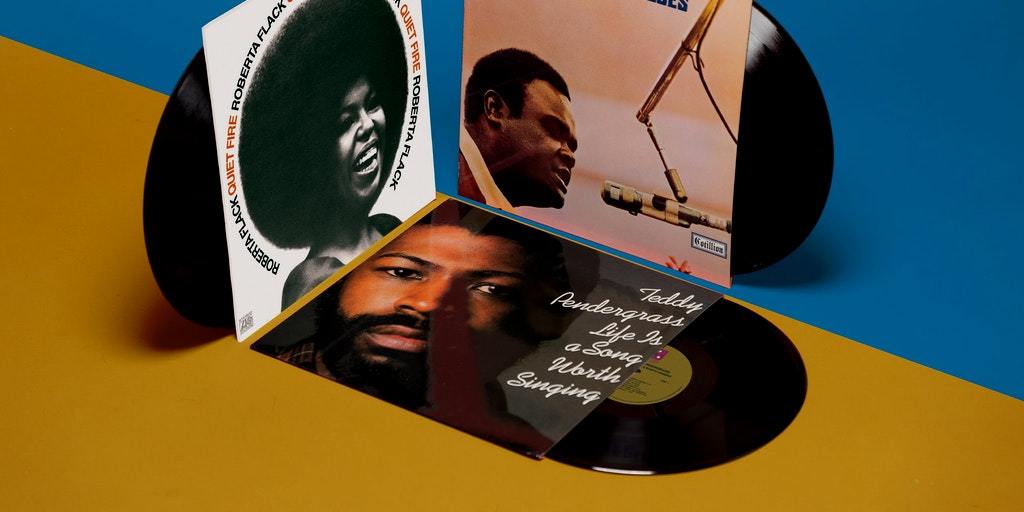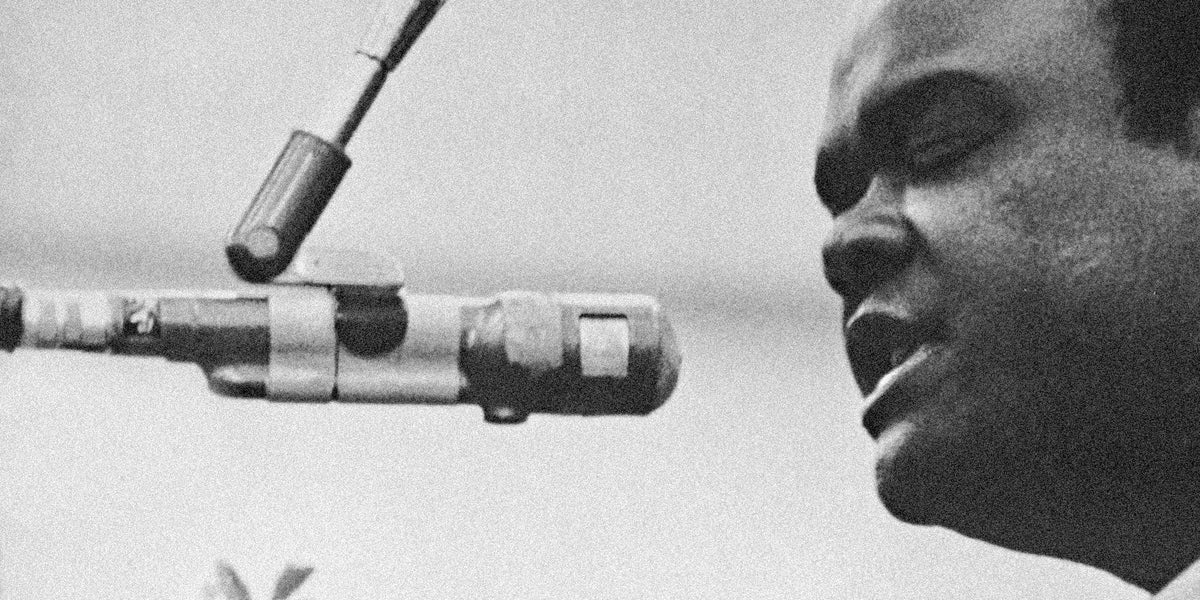The Three Kings of the Blues Kept Blues Alive
How Freddie, Albert and B.B. Helped the Genre Survive
In the mid ’50s, the blues was at a — pardon the pun — crossroads. The music had morphed into various strands (R&B, rock ’n’ roll) and had been incorporated into many more (jazz, pop). While the Chitlin Circuit and Chess Records were still running strong, it seemed unlikely that the generation that spawned Muddy Waters, Little Walter and Howlin’ Wolf, who themselves had followed Robert Johnson, Skip James and Son House, would not be followed by a new wave of young guns ready to preach their blues. But thanks to three men with the last name King — well, two anyway, but more on that later — the blues had a resurgence in the ’60s, due to their reimaginings of what electric blues could be and sound like, forever cementing themselves as the Three Kings of the Blues Guitar.
At first, there was B.B. Born Riley B. King in Mississippi, B.B. cut his chops in Memphis on Beale Street, where he earned his nickname, Beale Street Blues Boy — later shortened to Blues Boy — thanks to his prodigious gigs up and around the legendary crucible in downtown Memphis. King’s main gig in the late ’40s and early ’50s was as a blues DJ who sometimes played live guitar as well, but it was in the juke joints, slinging guitar, where his impact was first felt.
B.B.’s main contribution to blues guitar history is in how he recast his guitar not as an accompanist to his blues, but as a separate entity “singing” alongside him. Named Lucille, his Gibson often outshone B.B. himself vocally, as his solos often sounded as much like a verse from a second vocalist as opposed to an opportunity for pyrotechnics. B.B. and Lucille would undoubtedly pave the way for the other two Kings who came behind him, even if neither man played exactly like him. He’d also inspire Eric Clapton and many other white English guitarists playing “rock” in the ’60s. But he had expanded what a blues guitar could do, thanks to treating his guitar as his equal. Listen to this ode to “Lucille” to see what I’m talking about:
Freddie King came next, emerging just a few years after B.B., but hundreds of miles north, in Chicago, where he had moved from his native Texas. Born Fred King, Freddie spent his formative years studying the sounds of Texas — which blended the blues with every native American music, from jazz to country — and then being influenced by spending years in Chicago listening to the generation of bluesmen who came before who called the Windy City home. Freddie’s main aesthetic contribution to the blues was two fold — the nonchalant way he managed to somehow keep a guitar on himself despite having it slung on his shoulder like a messenger bag, and the way that he could translate the dry, crackling, groovy chug of Texas blues with the frenetic pace of Chicago jump blues.
Like B.B. and Albert, Freddie would record for a variety of labels in his day, but his musical peak was during his time being shepherded around the Atlantic roster by King Curtis, who’d go on to be Aretha Franklin’s bandleader and was the progenitor of the saxophone in rock music. He gave Freddie’s records a tinge of soul flair, which helped translate the blues guitar stylings Freddie was flinging to a new generation. It showed that soul and blues didn’t need to stand crosswise with each other; they could be better together, like peanut butter and jelly. That would have an obvious impact on the framing of the final King of the Blues.
The final King of the Blues was not really named King. Born Albert Nelson not far from where B.B. was born, Albert was a mainstay of the same juke joints and Beale Street clubs as B.B. At some point, either a manager or Albert himself decided that it would be good for him — as another son of a sharecropper and as a blues guitarist who could make a guitar wail — to try to pretend that he and B.B. were brothers, and that the name association could do wonders for him. He even named his guitar Lucy. This kind of mimicry would be roundly dismissed today; it actually worked for Albert. He booked better gigs, and was eking out a living driving trucks and playing gigs.
On a day off in Memphis, he found his way over to the Satellite Record Shop on McLemore in Memphis, which just so happened to be the record store at the front of the Stax studios. Stax founder Estelle Axton — who stocked the records and basically A&R’d which songs should be singles based on customer response in the store — recognized Albert, and knowing that the blues still sold solidly, basically strong-armed Albert into recording for Stax over the protestations of her brother, Stax co-founder Jim Stewart. Albert would be one of Stax’s most enduring artists, his albums and songs being among the label’s most beloved. Albert — who never met a guitar string he couldn’t bend to his will, nor a solo he couldn’t make sound like a machine gun opening up into the ground in a minefield — was a perfect fit for the piston-stomp of the Stax soul machine led by Booker T. & the M.G.’s. He was the final evolution in the chain that started with B.B.; an updating of the blues that took course over the 15-ish years between the Three Kings’ rise.
The Three Kings’ work would be visible across the blues in the ’70s and ’80s, particularly in new players like Lonnie Brooks and Stevie Ray Vaughan (who’d make an LP with Albert). All three have basically flawless catalogs filled with updates and reimaginings of the blues, though Freddie’s and Albert’s end in the ’70s and ’80s; Freddie died in 1976, and Albert followed in 1992. Every blues guitar player who’s picked up a Gibson, or a flying V, in the years since the Kings reigned owes them some fealty, and knows it, too.
Andrew Winistorfer is Senior Director of Music and Editorial at Vinyl Me, Please, and a writer and editor of their books, 100 Albums You Need in Your Collection and The Best Record Stores in the United States. He’s written Listening Notes for more than 30 VMP releases, co-produced multiple VMP Anthologies, and executive produced the VMP Anthologies The Story of Vanguard, The Story of Willie Nelson, Miles Davis: The Electric Years and The Story of Waylon Jennings. He lives in Saint Paul, Minnesota.
Related Articles
Join the Club!
Join Now, Starting at $36Pages







